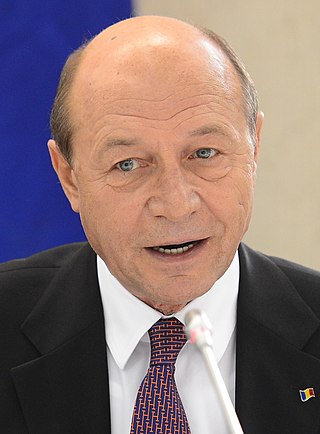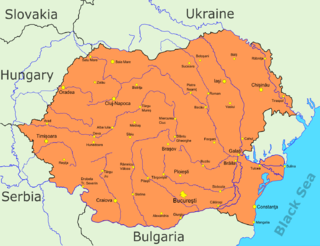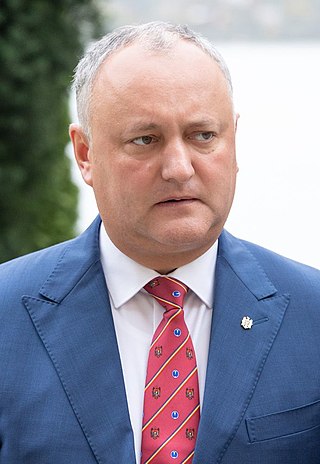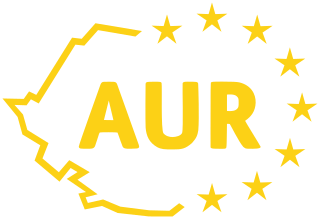Moldovan, archaically spelled Moldavian, is one of the two local names for the Romanian language in Moldova. Moldovan was declared the official language of Moldova in Article 13 of the constitution adopted in 1994, while the 1991 Declaration of Independence of Moldova used the name Romanian. In 2003, the Moldovan parliament adopted a law defining Moldovan and Romanian as glottonyms for the same language. In 2013, the Constitutional Court of Moldova interpreted that Article 13 of the constitution is superseded by the Declaration of Independence, thus giving official status to the name Romanian. The breakaway region of Transnistria continues to recognize Moldovan as one of its official languages, alongside Russian and Ukrainian. Ukraine also continues to make a distinction between Moldovan and Romanian, with one village declaring its language to be Romanian and another declaring it to be Moldovan, though Ukrainian officials have announced an intention to remove the legal status of Moldovan. On 16 March 2023, the Moldovan Parliament approved a law on referring to the national language as Romanian in all legislative texts and the constitution. On 22 March, the president of Moldova, Maia Sandu, promulgated the law.

Traian Băsescu is a Romanian conservative politician who served as President of Romania from 2004 to 2014. Prior to his presidency, Băsescu served as Romanian Minister of Transport on multiple occasions between 1991 and 2000, and as Mayor of Bucharest from 2000 to 2004. Additionally, he was elected as leader of the Democratic Party (PD) in 2001.
Romania does not allow same-sex marriage or civil unions. In June 2018, the European Court of Justice ruled that under certain circumstances same-sex spouses of European Union citizens should be granted a right of residency in Romania. The Constitution of Romania does not define marriage directly, but Article 48 of the Constitution defines marriages between "spouses" as the foundation of the family.

The ȘOR Party was a populist political party in Moldova. Known from its foundation in 1998 until October 2016 as the Socio-Political Movement "Equality", the party held Eurosceptic and Russophilic stances.

The unification of Moldova and Romania is a popular concept in the two countries that began during the Revolutions of 1989. The Romanian Revolution in 1989 and the independence of Moldova in 1991 further contributed to the development of a movement for the unification of the two Romanian-speaking countries. The question of reunification is recurrent in the public sphere of the two countries, often as a speculation, both as a goal and a danger. Though historically Romanian support for unification was high, a March 2022 survey following the Russian invasion of Ukraine indicated that only 11% of Romania's population supports an immediate union, while over 42% think it is not the right moment.

Modern Moldova-Romania relations emerged after the Republic of Moldova gained independence from the Soviet Union in 1991. Pan-Romanianism has been a consistent part of Moldovan politics, and was adopted in the Popular Front of Moldova's platform in 1992. The official language of Moldova is Romanian. The peoples of the two countries share common traditions and folklore, including a common name for the monetary unit – the leu. At present, relations between the two states are exceptionally friendly, especially on account of the pro-Romanian administration of Maia Sandu in Moldova.

Dorin Chirtoacă is a Moldovan politician who served as Mayor of Chișinău from 2007 to 2018. He has been leader of Liberal Party (PL) since 2018.

A controversy exists over the national identity and name of the native language of the main ethnic group in Moldova. The issue more frequently disputed is whether Moldovans constitute a subgroup of Romanians or a separate ethnic group. While there is wide agreement about the existence of a common language, the controversy persists about the use of the term "Moldovan language" in certain political contexts.

Igor Dodon is a Moldovan politician who previously served as the President of Moldova from 23 December 2016 to 24 December 2020. He currently serves as the leader of the Party of Socialists of the Republic of Moldova. He served as Minister of Economy and Trade in the governments of Vasile Tarlev and Zinaida Greceanîi from September 2006 to September 2009 and was a member of the Parliament of Moldova from 2009 to 2016. He lost his bid for re-election in 2020 to Maia Sandu, whom he had defeated four years earlier in the 2016 Moldovan presidential election.

Presidential elections were held in Romania in 2014. They were the seventh presidential elections held in post-1989 Romania. In the first round of the elections on 2 November, the top two of the fourteen candidates qualified in a run-off on 16 November. These candidates were Victor Ponta, former Prime Minister and ex-leader of the Social Democratic Party (PSD) who won around 40% of the vote in the first round, and Klaus Iohannis, then mayor of Sibiu and leader of the Christian Liberal Alliance (ACL), who won around 30% in the first round respectively. Following large protests on how Ponta's government organized the elections in the diaspora, Klaus Iohannis staged a surprising come-back and won the run-off with 54.5%, or more than a million votes than his contender.

Maia Sandu is a Moldovan politician who has been the President of Moldova since 24 December 2020. She is the founder and former leader of the Party of Action and Solidarity (PAS) and former Prime Minister of Moldova from 8 June 2019 until 14 November 2019, when the government collapsed after a vote of no-confidence. Sandu was Minister of Education from 2012 to 2015 and member of the Parliament of Moldova from 2014 to 2015, and again in 2019. Sandu was elected President of Moldova in a landslide victory during the 2020 Moldovan presidential election. The first female president of Moldova, Sandu is a strong supporter of the accession of Moldova to the European Union, overseeing Moldova's granting of candidate status, and is considered 'pro-Western'. She has criticised and opposed Russia's invasion of Ukraine and supported subsequent steps to reduce Moldova's economic dependence on Russia, frequently expressing sympathy and support for Ukraine in the conflict. Sandu has made anti-corruption, economic reform and liberalisation a central part of her political platform, as well as closer integration with Europe. In February 2023, she accused Russia of seeking to stage a coup of the Moldovan government and has continued to seek to reduce Russia's influence over the country.

Renato Usatîi is a Moldovan politician and businessman serving as President of Our Party since 8 February 2015. He is the current mayor of Bălți after previously holding the office from July 2015 to February 2018.

Starting in the spring of 2015, Moldova experienced large-scale protests amid a worsening economic situation and corruption scandals. The protests gained momentum in September, when up to 100,000 people demonstrated in the largest protest since Moldova's independence from the Soviet Union in August 1991.

The Save Romania Union is a liberal political party active in Romania, currently the third largest party in the Parliament of Romania with 41 deputies and 20 senators, and a fifth at local level nationwide, after the Democratic Alliance of Hungarians in Romania (UDMR/RMDSZ) and the People's Movement Party (PMP), two smaller centre-right political parties in the country.

Andrei Năstase is a Moldovan politician who served as Deputy Prime Minister and Minister of Internal Affairs from 8 June 2019 to 12 November 2019. He was also a member of Parliament of Moldova in 2019. Năstase was the leader of the Dignity and Truth Platform from 2015 to 2021.

Presidential elections were held in Moldova on 1 November. The fourth direct elections since independence in 1991, voters had the possibility to either elect a new president or re-elect the incumbent Igor Dodon. Because no candidate received a majority of votes in the first round, a run-off between the top two candidates, Maia Sandu and Dodon, was held on 15 November. Maia Sandu won the second round with 57.72% of the vote, becoming the first female President of the country and the first winner from the Party of Action and Solidarity (PAS).

The Alliance for the Union of Romanians is a right-wing populist and nationalist political party currently active in Romania and Moldova. It was founded on 19 September 2019 ahead of the 2020 Romanian local and legislative elections. The party president is George Simion.
During the COVID-19 pandemic, Romania has supported Moldova on several occasions, supplying it with medical equipment and supplies, volunteer Romanian experts and doctors and even a series of COVID-19 vaccine units that arrived on 27 February 2021, which allowed Moldova to start its vaccination program.

The Bloc of Communists and Socialists, previously known as the Electoral Bloc of Communists and Socialists, is a communist and democratic socialist political alliance in Moldova formed in May ahead of the 2021 Moldovan parliamentary election. Its members are the Party of Communists of the Republic of Moldova (PCRM) and the Party of Socialists of the Republic of Moldova (PSRM).

On 18 September 2022, protests in Moldova began in the capital city of Chișinău, demanding the resignation of the country's pro-Western government, amid an energy crisis causing rising natural gas prices and inflation, caused in part by the war in Ukraine.

















